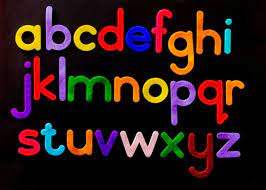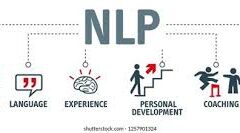It seems like some people honestly believe they can spot AI-generated content immediately, but that’s not always the case. Well-written content isn’t inherently AI-generated, and if it is AI-generated, that doesn’t necessarily mean it’s well-written. The quality of writing often depends more on the writer’s skill than the tools they use. Paradox of Writing With AI is that it will make a good writer better. And it will make a bad writer worse.
The real difference in human versus AI content lies in the accessibility of writing tools and the lack of proper ethical regulation for their use. This ease of access makes it simple for people to feel entitled to judge written content. True, if you publish your writing – online or elsewhere – you open it up for judgement. But imagine if UX design or data applications were graded as indiscriminately—those discussions would likely be confined to experts rather than becoming public debates on social media condemning all well-written content.
Good writing requires creativity, flair, and uniqueness, among other skills, to truly impress readers. Good writing is well-organized and flows well with consistent style or voice from beginning to end. Good writing is also free from mistakes and errors in spelling, punctuation and grammar. But that alone doesn’t make it engaging or meaningful.
A good writer will brainstorm for great ideas and follow them up with research. A good writer can think of fresh angles to view a topic. A good writer is sure to re-write and self-edit to make a better draft.
AI has been integrated into various tools and applications long before ChatGPT was launched. Search engines use it to provide relevant results; social media algorithms keep your favorite content visible; Siri and Alexa rely on natural language processing and speech recognition; Netflix and Spotify use AI recommendation systems to cater to your tastes, and so on. AI enhances human ideas, not just in writing, but across many fields.
Writing With AI is Inevitable
For instance, Chinese Nobel laureate Mo Yan surprised everyone at the 65th-anniversary celebration of Shouhuo magazine by revealing he uses ChatGPT. During his speech praising fellow author Yu Hua, he mentioned that he struggled to write a commendation and asked a doctoral student to use ChatGPT for help. This revelation caused quite a stir, as it was unexpected for a Nobel Prize winner to use AI for writing. Why shouldn’t he? If AI makes a good writer better, then most of us should be employing it.
Mo Yan isn’t alone. Rie Kudan, the 17th winner of Japan’s Akutagawa Prize, admitted to using ChatGPT for her novel, Tokyo-to Dojo-to. She stated that about 5% of the book consists of AI-generated sentences. Kudan, who is introverted, shared that frequent interactions with the AI tool allowed her to express personal thoughts she couldn’t comfortably discuss with others. ChatGPT’s responses often sparked dialogue in her novel, adding a unique dimension to her writing process.
Grammarly, another AI tool, is why some people’s writing doesn’t reflect their irritation when discussing AI-generated content online. Grammarly has been widely used for editing and proofreading, ensuring users’ writing maintains a promotional tone and corrects errors without sounding sarcastic or bored.
The Problem with Sounding Alike & The Uniqueness of a Writer’s Voice
A significant issue with AI-generated content is that many written works sound similar. Writers need to develop unique voices. While Jane Austen, Mary Shelley, and the Brontë sisters are admirable, emulating their ornate language can interfere with communication’s primary purpose. Excessive fanciness can make speech overly flamboyant, akin to Oscar Wilde’s works. However asking AI to work through your content and put it in the voice of a known writer, add humor, or change the tense is time saving.
The problem isn’t that AI enables people to produce well-crafted content. Many individuals have exceptional writing skills and huge vocabularies. The real issue is the uniformity in everyone’s writing, a lack of diversity that AI can perpetuate. Yet, you only have to Google any topic and you will find many blog posts and articles that share the same view, and perhaps the same voice.
Some discussions about AI resemble early 2000s conspiracy theories about cell phones. While the context has changed, the tone remains similar.
The Importance of Creativity in Writing & Our Language
Creativity is essential in writing. Even AI relies on human creativity. Without our input, machines would repeatedly generate the same content. Machine learning in AI is about learning from people. Our role is crucial, demonstrating the value of our unique voices.
Developing a unique voice takes time and effort, which is why creatives like Kelly McKernan, Nicki Minaj, Elin Hilderbrand, and Jonathan Franzen are suing AI companies for copyright infringement. These unique voices significantly impact language evolution, and it’s vital for us to continue growing creatively.
Writers play a crucial role in language evolution by creating new words or phrases that captivate readers. Over time, these innovations can enrich the language. A writer’s distinctive style can set trends, leading to significant changes in language use. This power must be used wisely.
Famous writers’ narrative structures and dialogue usage can inspire others. For example, Dr. Seuss coined “nerd,” J.R.R. Tolkien introduced “tween,” Milton created “pandemonium”, novelist William Gibson first used “cyberspace”, Johnathon Swift gave us “yahoo” in Gulliver’s Travels, and Charles Dickens gave us “boredom.”
The core of a good piece of writing is a great idea. With a strong core idea, the writer can easily layer the content around it. Content even can build the framework from which comes a whole new word. Content includes interesting examples to which the reader can relate. That content needs to be well-organized and clear in form so that the reader can easily see the message or find the intended meaning. In addition, the writing should have style and the right voice that matches its topic and theme while also reflecting what the author believes.
Writing Through the Centuries
Writing has evolved over centuries, influencing language development. During the Victorian and Renaissance eras, writers conveyed ideas through fundamental thoughts, emotional expressions, rhythm, and virtuous language. These changes have led to shifts in writing styles over time, reflecting diverse backgrounds, generational differences, life experiences, and geographical variations.
The internet, digital media, and globalization have expanded vocabulary and literary expression. Writing systems typically develop more slowly than spoken language, preserving characteristics and idioms lost to spoken language.
The evolution of languages is tied to our ability to communicate. English, for example, has been enriched by various native languages, making it more appealing. Our culture, beliefs, fashion, values, art, and technology shape our communication.
In 2023, Mental Floss published a list of 20 new words added to the Oxford dictionary. Air Fryer and Captain Obvious are two, and we can scarcely remember a time they weren’t part of our vocabulary.
Developing a Unique Voice
Writers should translate their spoken language into writing, reflecting their distinct cultural, educational, social, and professional contexts. These unique voices are crucial for preserving and evolving language.
In today’s interconnected world, a writer’s voice transcends linguistic and cultural boundaries, influencing other languages and literary traditions. This can result in style and word exchanges between languages, showcasing writers’ profound impact on language evolution.
How writers employ their voice and tone affects how readers engage with the text, interpret the message, and perceive the writer. This engagement can lead to discussions and the spread of ideas, further influencing language use.
Every Writer’s Responsibility
Writers must acknowledge their responsibilities and strive to maintain their unique voices, even when using AI. Using AI to write doesn’t guarantee quality content. The writer’s ability to express themselves clearly is the primary factor. While AI can be helpful, it’s only one tool in a writer’s arsenal.
Moving forward, consider avoiding overused AI-generated phrases and rephrase them in your own words. Enhance your content with AI, but remember to maintain your unique voice, as the further development of our language depends on it.











